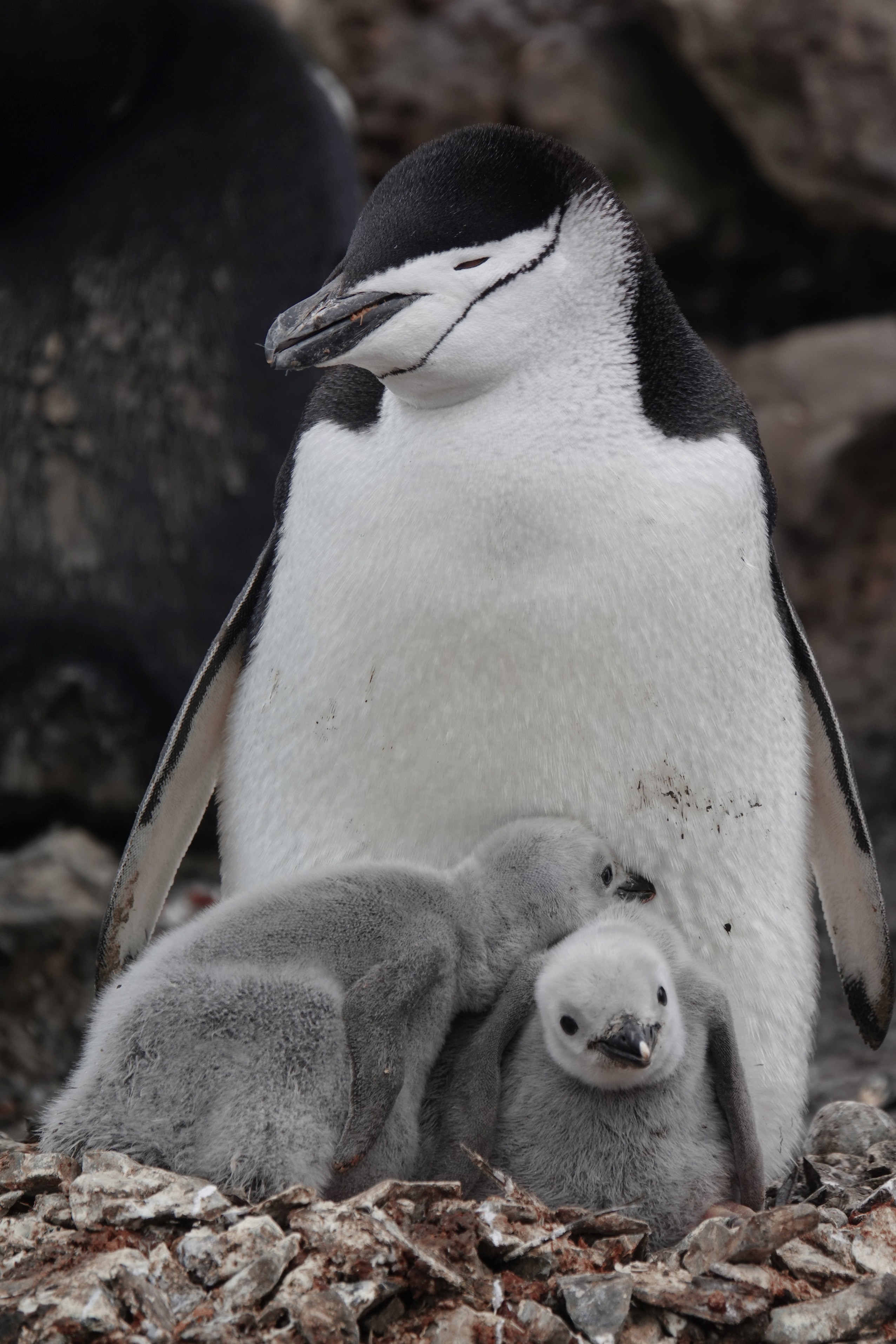When it comes to sleeping, the animal kingdom has a whole range of options. Some might opt for a long period of hibernation, and others dream the night away – but a new study on chinstrap penguins has revealed that they get around 11 hours of sleep in four-second bursts.
On King George Island in Antarctica, a colony of chinstrap penguins (Pygoscelis antarcticus) go on foraging trips, guard their eggs, and raise their young. A predator of chinstrap penguin eggs in this area is the brown skua (Stercorarius antarcticus), a bird that seeks to sneak unguarded eggs from the nest mainly at the edge of the colony.
Chinstrap penguin couples separate for foraging trips, with one member heading out to sea while the other stays to guard the offspring. The “stay-at-home” parent must therefore maintain constant vigilance guarding the eggs or young chicks to prevent predation events, and even protect their nest site from theft by other invading penguins.

“I’m just resting my eyes”
Image Credit: Won Young Lee
The penguin parent therefore faces a challenge when it comes to sleeping – nodding off for too long would leave the chicks unguarded from potential threats. So what do they do? The team examined 14 penguins with eggs in their nests and, using data loggers, measured sleep-related activity in their brains and body posture changes.
The penguins went about their foraging behavior, taking turns incubating the nests. The team found that sleep could occur in the penguins at the nest while they were either lying or standing, and nearly 72 percent of their short-wave-sleep (SWS) was in bouts lasting less than 10 seconds.
The team also found that while both penguin parents had around 600 bouts of SWS per hour, those incubating the nest had more SWS in shorter bouts. Both parents seemed to sleep better during the middle third of the day.
Another interesting finding from the study found that contrary to what the team believed, birds nesting at the edge of the colony actually slept better and had longer periods of SWS than those birds nesting closer to the center. This suggests that the need for vigilance against predators like the skua might not be such a pressure, and instead nest thieving by other penguins could be more of a direct threat.
“The data reported by Libourel et al. could be one of the most extreme examples of the incremental nature by which the benefits of sleep can accrue,” write Christian Harding and Vladyslav Vyazovskiy in a Perspective article in the same journal, mentioned in a statement about the new study. “Although sleep bout duration is sensitive to many variables and differs widely among species, the seconds-long microsleeps of chinstrap penguins are markedly brief.”
Overall, the team found that the penguins accumulated around 11 hours of sleep by sleeping for only 4 seconds around 10,000 times a day. They suggest that repeated microsleeps must give at least some of the benefits associated with sleeping for longer periods of time, providing short periods for rest and recovery.
The paper is published in the journal Science.
Source Link: Vigilant Chinstrap Penguin Parents Sleep In 4-Second Bouts, 10,000 Times A Day